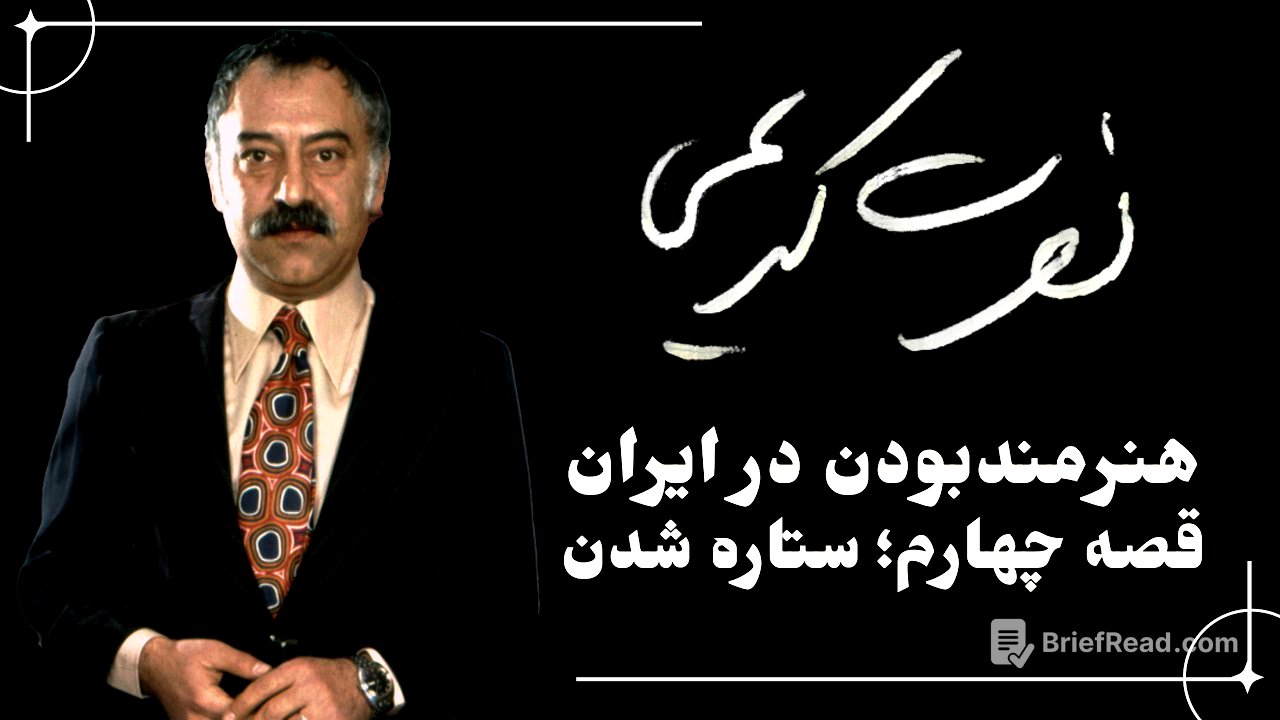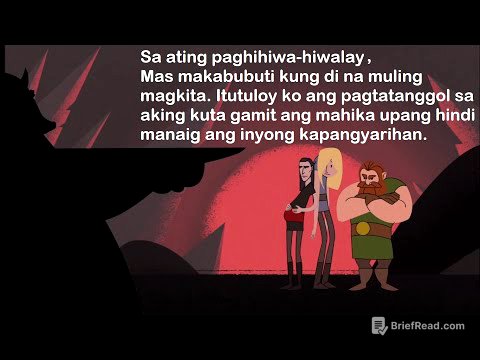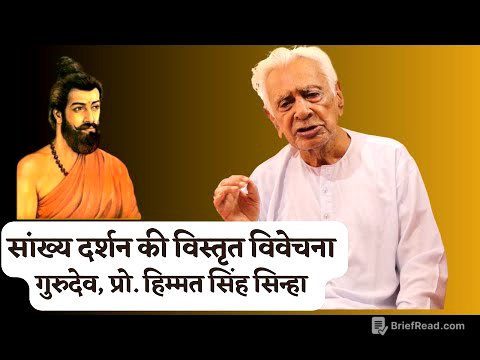TLDR;
This video features an in-depth discussion about the life and works of Nosrat Karimi, a prominent figure in Iranian cinema. The video covers various aspects of his career, including the production of his films like "Mahalla" and "Drasht Kechi," the challenges he faced, and his experiences working on the TV series "Daijan Napoleon." It also explores his views on neorealism, social criticism, and the role of cinema in reflecting and addressing societal issues.
- Karimi's approach to filmmaking, emphasizing social critique through comedy.
- The controversies and criticisms surrounding some of his films, particularly "Mahalla."
- His experiences working on "Daijan Napoleon" and the positive reception it received.
- Karimi's artistic philosophy, focusing on creating relatable characters and addressing real-life problems.
Introduction [0:00]
The video starts by highlighting the rarity of great cinematic works, noting that they emerge after extensive film production and often feature originality in story and acting. It specifically mentions "gross-out comedy films" as an example, introducing Nosratollah Karimi as a key figure in this genre.
The Making of "Mahalla" [1:31]
Karimi recounts being invited to make a film after an agreement, emphasizing his insistence on directorial control. He aimed to create films that were both commercially successful and appealing to educated audiences. The discussion touches on the challenges faced during the production of "Mahalla," particularly in casting the role of Shamsi, Haj Agha Ala's wife. Karimi shares his decision to cast Irene, a Christian actress, and the extensive preparation she underwent to convincingly portray a devout Muslim woman.
Technical Aspects and Set Experiences [7:13]
The conversation shifts to the technical aspects of filmmaking, highlighting the importance of pre-planning music and camera work. Karimi contrasts this with the modern approach of filming everything and editing later. He shares an anecdote about filming a fight scene where he incorporated the reactions of onlookers into the movie, using them as "free actors" to enhance the scene's authenticity.
Success and Criticism of "Mahalla" and "Drasht Kechi" [9:45]
The video discusses the initial success of "Mahalla," contrasting it with "Drasht Kechi," which had already made Karimi famous. The extensive media coverage he received is mentioned, along with the challenges that came with fame, such as rumors and enemies. Karimi points out the vulnerability of artists to reputation attacks compared to politicians and athletes. He also addresses the controversy surrounding "Mahalla," including accusations of Baha'i influence due to its production at Misaghiyeh Studio and broadcast on Sabet Pasal's television programs.
Controversy and Defense of "Mahalla" [13:07]
The video details the backlash against "Mahalla," including complaints to Ayatollah Shahid Motahari. Critics accused the film of misrepresenting society and violating Islamic law. Karimi responded with a detailed article defending his work, asserting his Shiite Muslim background and arguing that the film addressed real issues within society. He cited news articles to support his claims about the existence of problematic marriage and divorce practices. Karimi also extended an invitation to Motahari to view the film privately and offer guidance.
Addressing Misconceptions and Defending Artistic Choices [18:15]
Karimi addresses the misconception about the "Mahalla" concept, clarifying its distortion from Islamic jurisprudence. He critiques the exploitation of temporary marriages (Sighe) and emphasizes his intention to highlight the misfortunes faced by those who divorce their wives three times. Karimi defends his portrayal of Hajj Aba, aiming to preserve the man's honor while critiquing unjust laws. He also mentions establishing good relations with Martyr Motahari through friendly messages and recounts a message from Motahari's wife.
Exploitation and Disappointment in Acting Roles [24:13]
Karimi discusses the deceptive nature of the film industry, recounting how he signed three contracts during his successful period. He shares his regret over acting in "Hakim Bashi," a film he found embarrassing due to its poor quality and vulgar dialogue. Despite his disappointment, he felt obligated to fulfill his contractual commitments. Karimi also mentions his roles in "Hassan Siah" and "Ayal Bar," disowning these films due to their misrepresentation of his artistic vision.
Public Reaction and Disowning Certain Films [28:35]
The video describes how "Hakim Bashi" was falsely promoted as a Nosrat Karimi film, leading to public backlash and criticism. Karimi clarifies that he only acted in these films and was not responsible for their direction or writing. He recounts instances where people recognized him and expressed their disappointment, emphasizing his efforts to distance himself from these projects.
The "Three-Person Bed" and Critical Reception [32:28]
Karimi discusses his film "The Bed for Three," noting its poor sales and the negative reviews it received. Critics attacked the film and even revisited his earlier works like "Drasht Kechi" and "Mahalal." He defends his artistic choices, comparing his films to a painter's collection, where some works are better than others. Karimi ranks his films, placing "Mahalla" first, followed by "Drasht Kechi," "The Ruined House," and lastly, "The Triple Bed."
Personal History and Neorealism [38:12]
The video transitions to a discussion about Karimi's personal history and his approach to neorealism. He shares anecdotes about his grandfather's house, highlighting its historical significance and architectural features. Karimi then explains his fascination with neorealist films, particularly those of Victoria De Sica, and his desire to implement this style in Iran. He outlines the key elements of neorealism, including national color schemes, portrayal of real life, focus on ordinary people, use of non-actors, and filming in natural environments.
Social Critique and Artistic Philosophy [45:57]
Karimi emphasizes his commitment to social critique, noting that he always starts with an interesting story and incorporates his concerns unconsciously. He shares a scene from one of his films, highlighting the contrast between subjective mental reality and objective reality. Karimi asserts that objective reality ultimately prevails. He also discusses the challenges of criticizing people during an era when "the people" were considered sacred, and how he used comedy to safely address cultural issues.
Dream and Artistic Goals [1:20:51]
Karimi reflects on his dream to be like Charlie Chaplin and Victoria De Sica, creating characters that resonate with the people. He emphasizes the importance of making films that address real-life problems and evoke both laughter and sadness. Karimi concludes by stating that all his films end with a happy ending, reflecting his wish for people to have a joyful life.
Joining "Daijan Napoleon" [54:28]
Karimi recounts how he joined the TV series "Daijan Napoleon" after receiving a call from Nasser Taghvai. He was initially between films and writing a script called "Sabab and Kebab." Taghvai offered him the role of Aghajan, and Karimi suggested casting Asghar Gardezi, Irvanloo, and Gholam Hossein Naqshineh, actors from the 1920s, to bring authenticity to the series. He also recommended Varshoch and Parvin Chiz Soleimani for smaller roles.
Collaboration and Positive Experiences on "Daijan Napoleon" [1:01:59]
The video highlights the positive experiences of working on "Daijan Napoleon," emphasizing the collaboration with reputable actors and the enjoyable atmosphere on set. Mahosh Sheikhol-Eslami's role in ensuring everything was well-organized and on schedule is acknowledged. The series is described as the best ever made in Iran, with its success attributed to Iraj Pezakzad's original novel and Taghvai's direction.
Insights into "Daijan Napoleon" and Personal Connections [1:07:30]
The discussion explores the personal connections within "Daijan Napoleon," noting that the character of Saeed reflects Iraj Pezakzad's own life and experiences with unrequited love. Karimi shares anecdotes from the filming, including a moment when Pezzekzad was moved to tears by Karimi's portrayal of Aghajan, stating that it brought his father back to life. The video also delves into the social conflict represented in the series, with Daijan Napoleon symbolizing the Qajar aristocracy and Aghajan representing the Pahlavi modernization of Reza Shah.
Taghvai's Direction and Karimi's Role as an Actor [1:13:10]
The video praises Nasser Taghvai's skills as a director, highlighting his ability to work with actors and extract compelling performances. Karimi emphasizes his commitment to serving the director's vision, setting aside his own directorial and screenwriting experience. He recounts a memory of filming a scene in a house, noting the collaborative and positive energy on set.
Memorable Moments and Lasting Impact of "Daijan Napoleon" [1:17:08]
Karimi shares a memorable moment of Fenni Zadeh's performance as Mashq Qasim, describing how he transformed from a dancer to a scoundrel in an instant. The video concludes by emphasizing the lasting impact of "Daijan Napoleon," estimating that nearly 100 million Iranians have seen the series, solidifying its place in Iranian cultural history.









